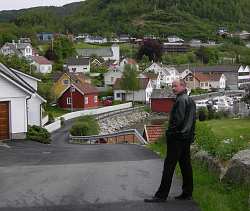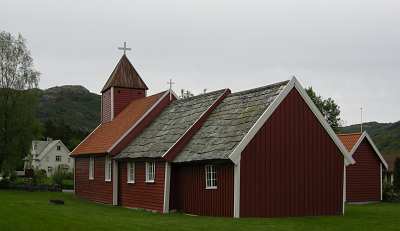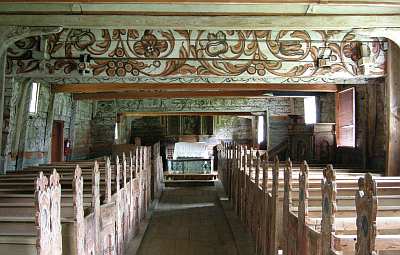Erling Rimehaug skrev i Vårt Land sist uke en artikkel med en trist overskrift og ingress: Slutten for kristne mellom elvene? Mens vi feiret 17. mai, rømte irakiske kristne fra hjemmene sine etter å ha fått krav fra væpnede islamister om å omvende seg.
– Ved Babylons floder satt vi og gråt, står det i Bibelen. Det var de deporterte jødene som gråt av lengsel etter Jerusalem. I dag er det de kristne som gråter i landet mellom elvene. De har overlevd 1.400 år med muslimsk styre. Nå er de i ferd med å bukke under.
Den katolske kirke i Norge har de siste årene tatt i mot mange av disse kristne, som er katolikker og kalles kaldeiske. Senest for et par dager siden hørte jeg om et par nye familier av disse innefor vår egen menighets grenser. Rimehaug skriver bl.a. dette:
De siste ukene har representanter for en muslimsk væpnet gruppe, sammen med sjeiken fra en lokal moské, gått rundt til alle kristne familier i bydelen Dora sørøst i Bagdad. I denne forholdsvis fattige bydelen bor de fleste kristne i den irakiske hovedstaden.
Ifølge det katolske nyhetsbyrået AINA har de kristne fått beskjed om å betale den tradisjonelle skatten for ikke-muslimer (jizya), som ble satt til omtrent 1.500 norske kroner – en astronomisk sum for fattige irakere. Hvis de ikke betalte, fikk de tre valg: Komme til moskeen og omvende seg, forlate hjemmet uten å ta med seg noen eiendeler, eller å bli drept. … ..
Aksjonene mot de kristne i Bagdad kommer etter lang tids trakassering av den kristne minoriteten i landet. Kristne kvinner blir truet til å gå med slør, eller banket opp om de ikke gjør det, kristne blir kidnappet med krav om løsepenger, de blir jaget hjemmefra og drept. Flere ganger er kirker brent.
I begynnelsen av mai gikk den irakiske patriarken Emmanuel III Delly ut med skarp kritikk av regjeringen fordi den ikke gjør noe for å stanse forfølgelsen av de kristne. … Tirsdag gikk den irakiske regjeringen til det uvanlige skritt å offentliggjøre en erklæring mot trusler og deportasjoner av irakiske kristne. Dette er i strid med ortodoks islamsk lære, sier regjeringen, og lover de kristne all mulig støtte. Dessverre er det siste bare tomme ord. Den irakiske regjeringen har overhodet ingen kontroll over situasjonen i områdene der de kristne bor, og har ikke løftet en finger for å hjelpe dem. … …
Det som i alle fall er sikkert, er at den syriske-ortodokse kirke er en av verdens eldste. … … De syriskortodokse, eller assyrerne som de gjerne kaller seg selv, bor i Nord-Irak og Syria. I Tyrkia bodde også mange, men de ble utryddet av Atatürks nasjonalister, på samme måte som armenerne.
De fleste irakiske kristne kalles imidlertid kaldeere – det vil si at de gjør assyrernes historiske rival, babylonerne, til sine aner. Den kaldeiske kirken oppsto på 1700-tallet da en del av den syriske kirken sluttet seg til pavekirken. Til tross for disse historiske skillene er det i dag nære bånd mellom de assyriske og de kaldeiske kristne, presset som de har vært både av islam og av Saddam Husseins styre.



